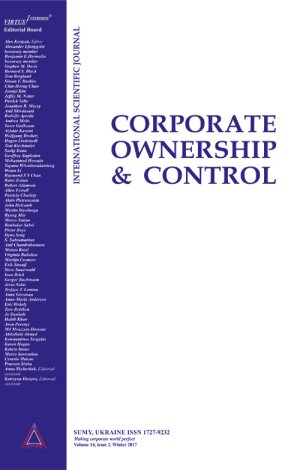
-
 Journal menu
Journal menu

- General information
- Editorial Board and External Reviewers
- Journal Policies
- Publication Ethics and Malpractice Statement
- Instructions for authors
- Paper reviewing
- Article processing charge
- Feedback from stakeholders
- Journal’s Open Access statement
- Order hard copies of the journal
- 50 most cited papers in the journal
RISK MANAGEMENT WITH MANAGEMENT CONTROL SYSTEMS: A PRAGMATIC CONSTRUCTIVIST PERSPECTIVE
Download This ArticleAbstract
This paper addresses the issue that calculative practices build on socially constructed facts that have both subjective and objective components. Using risk management as an example, we take a pragmatic-constructivist stance to explore how such a tool might be integrated in actor-based Management Control Systems. We propose a conceptual framework and a research agenda that accounts for actorship (L. Nørreklit, 2013) beyond numerical facts.
This paper is conceptual and draws on secondary literature. Our framework highlights the non-linear, iterative nature of integrating calculative practices that specifically require complex reflection concerning the [1] validation if possibilities are factual (combining subjective and numerical data), [2] the elimination of illusions and sur-realities through constructive conflict/dialectical management, and [3] the co-construction of organization-wide topoi (causality and pertinent accounting practices). Our research furthers practice research on calculative practices through the development of a prescriptive rather than descriptive framework. It also offers propositions that future case study researchers can use.
Keywords: Management Control Systems, Risk Management, Pragmatic Constructivism, Calculative Practice, Practice Theory
How to cite this paper: Lueg, R., Knapik, M. (2016). Risk management with management control systems: a pragmatic constructivist perspective. Corporate Ownership & Control, 13(3), 72-81. https://doi.org/10.22495/cocv13i3p6

















